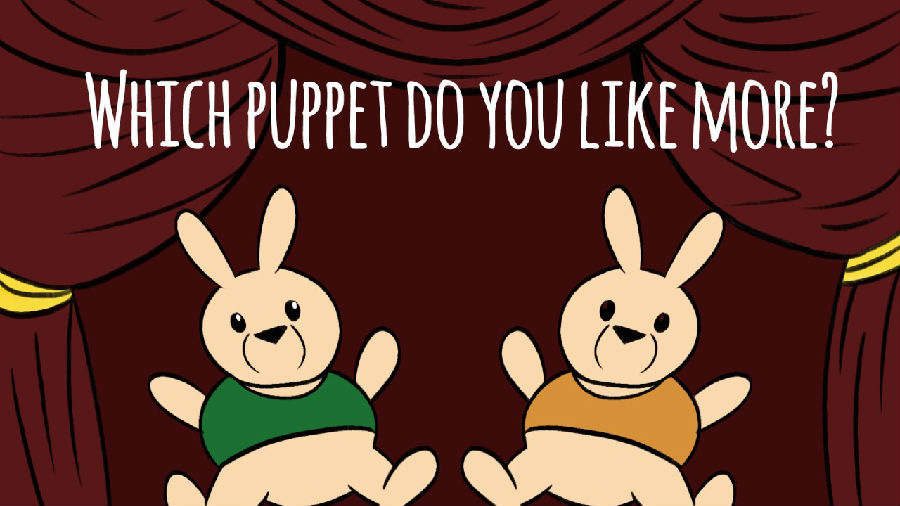(单词翻译:单击)
Over the years, philosophers and psychologists alike have speculated over whether we are taught to know the difference between right and wrong
多年来,哲学家和心理学家们都在推测人类对于好与坏是习得的
or whether we are predisposed understanding to know it.
还是人类生下来便有的。
The question of morality has lingered for hundreds of years and previously,
关于道德的问题已徘徊了上百年,
it was widely believed that a human is born a blank slate with their ideas on right and wrong formed by their environment.
此前普遍认为人类在出生时对于好与坏的想法是一片白板,是在后天的环境中形成的。
This concept concerning morality was proposed by famous18th century philosopher Jean-Jacques Rousseau
关于道德的概念是由18世纪著名的哲学家让-雅克·卢梭提出的
who stated that babies are born unknowing of any sense of ethics and that they had to be educated to learn them.
他提出婴儿在出生时是没有道德感的,他们需要通过教育去学习。
This theory has been accepted by the general public for many years but recently a new theory has risen to answer this long-standing question.
多年来大众普遍都接受这种理论,但是近日提出的一项新理论回答了这个存在已久的问题。
Dr. Karen Wynne runs Yale University's Infant Cognition Center also known as the Baby Lab.
凯伦·云茵博士是耶鲁大学婴幼儿认知中心,也称婴儿实验室的负责人。
The team of researchers at the Infant Cognition Center have been studying baby behavior for decades
婴幼儿认知中心的研究团队几十年来一直在研究婴儿行为
and beginning about eight years ago, they started to conduct a series of tests to examine a baby's understanding of good and bad behavior.
并且从八年前开始,他们就在进行一系列研究婴儿对好与坏行为的认知。
These tests were conducted by showing babies aged 5 months old a puppet show.
试验是给5个月大的婴儿观看一场木偶表演。
The puppet show featured a black and white cat trying to open a box but finding difficulties in its attempts.
木偶表演中,一只黑色的猫和一只白色的猫正在尝试打开一个箱子,但是在尝试中遇到很多困难。
The show also features two rabbits in different colored shirts and during its course the babies are presented with two scenarios.
表演中还有两种穿着不同颜色T恤的兔子,在实验中,要给婴儿观看两个场景。
In the first, the rabbit puppet with the green shirt aids the cat in its attempt to open the box;
第一个场景,穿着绿色T恤的兔子木偶帮助猫咪打开箱子;

while during the second, the rabbit dressing in the orange shirt deliberately inhibits the cat's ability to open the box by slamming it shut.
而在第二个场景中,穿着橙色衣服的兔子木偶故意阻止猫咪打开箱子,在猫咪将要打开时有把箱子关上。
After the show, a staff member unaware which is the good or bad rabbit
表演结束后,一名没看过表演的工作人员
will hold both puppets and ask the baby which puppet he or she likes more.
拿着两只兔子并问小婴儿,他们更喜欢哪只兔子。
The mother, who is usually there with the child will close her eyes so that she will not influence her baby's decisions.
陪伴着婴儿的母亲此时会闭上眼睛,这样她们就不会影响孩子的选择。
Obviously, the babies are unable to answer through dialogue but they will reach for the toy they like best.
显然婴儿时无法通过对话来回答的,但是他们会伸手去拿自己最喜欢的玩具。
The results? More than 80% of the 5 month old babies showed a liking towards the bunny that helps the cat
实验结果?超过80%的5月大婴儿喜欢帮助猫咪的兔子
and this number increased 87% when tested on three month old babies.
当实验对象换成3个月大的婴儿时,这个数字增加到87%。
The study was also conducted on babies aged three months though the children at that age unable to grab objects
他们也对3个月大的婴儿进行了该实验,虽然这个年龄段的婴儿抓不住任何物品
so alternative techniques were used.
所以他们使用了替换方法。
Numerous studies have shown that a baby will look at something longer if they like it and for short time if they don't.
无数的研究都表明,如果一个婴儿喜欢这个东西,他看着这个东西的时间就更长,反之亦然。
So the researchers calculated their chosen rabbit by which one they looked at longer.
所以研究人员通过计算时间判断他们喜欢哪只兔子。
This information seems to suggest that we were born with innate sense of morality rather than the blank-slate mentality suggested by Rousseau.
这一信息似乎暗示人类生下来便有天生的道德感,而非卢梭所说的心智一片空白。
However, though the results appear solid, this conclusion of an inbuilt sense of morality cannot be drawn too quickly, as a few questions still remain.
但是虽然结果可靠,但是关于先天道德感的结论不能下的太快,因为仍然存在几个问题。
Rousseau's theory could still be plausible if we consider the possibility that
卢梭的理论仍然貌似可信,如果我们将一种可能性考虑其中:
the babies had learnt the difference between right and wrong in their three months prior to the experiment.
婴儿是否在实验前的三个月中了解到了好与坏的区别。
Furthermore, more of the 5 month old babies chose the bad puppet than the three month old ones.
更重要的是,和3个月的婴儿相比,有更多5个月大的婴儿选择了坏兔子。
Does this suggest that the older you get, the more your sense of right and wrong fades, or is this simply too early to tell at that age?
这是否暗示年纪越大,是非之感就会消失的越多,或者这个年纪还是太早了?
Leave a comment down below with your thoughts. Thanks for watching and if you enjoyed, don't forget to subscribe.
请在下方留言分享你的想法。感谢收看,如果喜欢,不要忘记订阅。
Also check out the other great content from Psych2go.
登录Psych2go观看更多其他内容。


